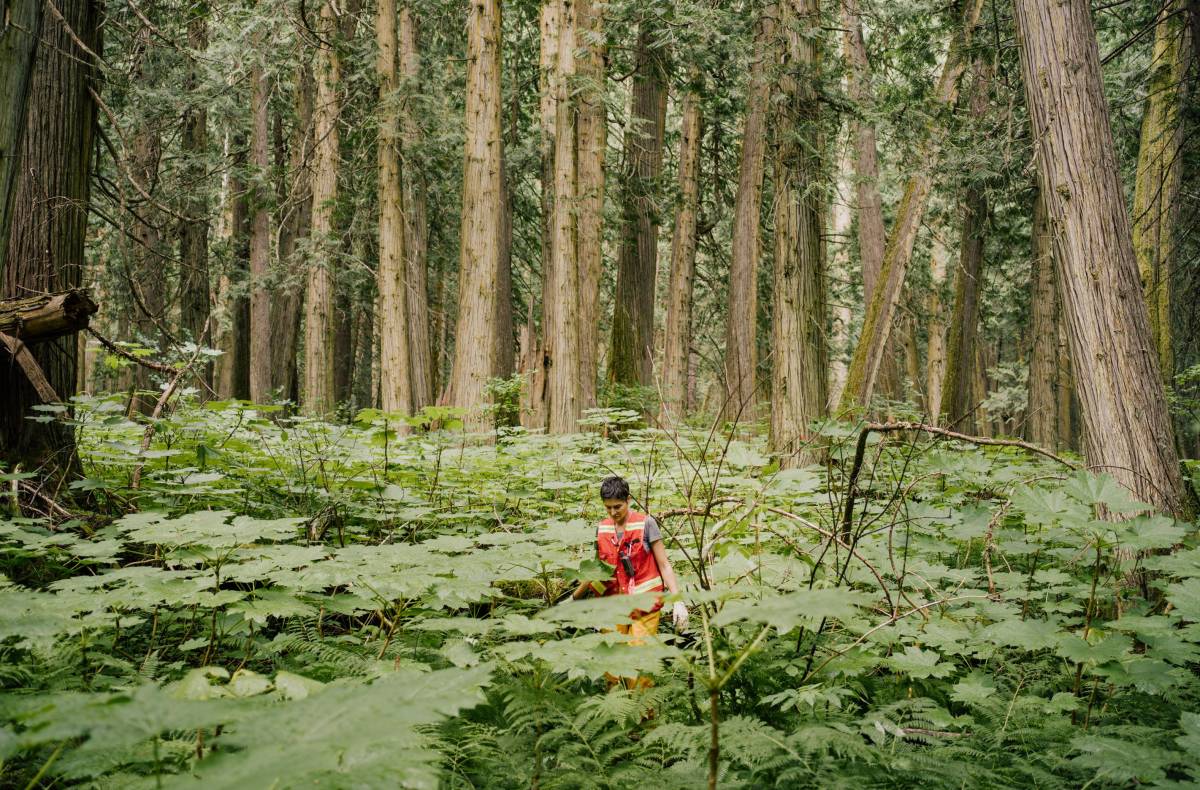The following note was sent from Sandy Houston, Metcalf’s President and CEO, to sector partners and colleagues in July 2021 announcing the new funding emphasis for Carbon Landscapes.
Dear Colleagues,
Two years ago I wrote to many of you to announce that starting in 2020, Metcalf Foundation would be directing 100% of our Environment Program funding to our Carbon Landscapes initiative.
When we first launched Carbon Landscapes back in 2017, one of our main goals was to help integrate what were often parallel but separate efforts to combat climate change and safeguard biodiversity. The work of many between 2017-2020 got Canada to a point where nature-based climate solutions landed on the front burner and major new commitments to safeguard both our climate and nature started to roll out at the federal level. Our decision to go all-in on Carbon Landscapes in 2020 was built on this success and premised on the huge potential that exists to help protect and conserve globally-significant ecosystems in Canada that benefit our climate, biodiversity, and the livelihoods of many for whom these regions are home.
A lot has transpired since 2017, but especially over the past 12 months (and I’m not talking about Covid here).
This past year saw a number of notable milestones relevant to our Carbon Landscapes work including Canada’s commitment to protect 30% of lands and waters by 2030, increased support for Indigenous-led conservation and Indigenous Guardians, passage of Canada’s first-ever climate accountability legislation, and billions of additional federal support for nature-based climate solutions, and nature and climate more broadly.
Taking stock of this progress, the timing is right to adjust our funding emphasis to help ensure government commitments translate into action on the ground. While our first four years of Carbon Landscapes funding have been intentionally weighted towards building the case for action to advance nature-based climate solutions in Canada, we are now in a fortunate position to shift towards an implementation-focused strategy.
As just one foundation with a finite amount of funding, we try our best to develop thoughtful, well-informed funding strategies that enable us to punch above our weight. Earlier this summer, landmark research on the potential of natural climate solutions in Canada was published in the journal Science Advances. Two years in the making, this research was led by Nature United and co-authored by 38 experts from 16 institutions. Metcalf was a lead funder of this study, and from our early investment in this research we have been eagerly anticipating its findings to directly inform the next phase of our Carbon Landscapes strategy.
Among the study’s many important findings, protecting and conserving peatlands, grasslands, and old growth forests in Canada was highlighted as key to secure the climate and biodiversity benefits these ecosystems provide. Central to this effort must be support for Indigenous-led conservation.
Based on the study’s insights, recent progress at the federal level, and our experience to date, Carbon Landscapes funding will now be geared to help protect and conserve these three priority landscapes rich in carbon and biodiversity: peatlands, grasslands, and old growth forests.
Our approach will continue to be grounded in respect for Indigenous rights, culture, and traditions, and our on-the-ground funding will continue to prioritize Indigenous-led conservation in two major peatland regions: the Hudson Bay Lowlands and the Mackenzie River Basin. We will also maintain support for related research, convening, and outreach activities focused on a federal, provincial, and territorial scale. All of this work combined will help tackle the twin crises of climate change and biodiversity loss with integrated solutions.
We encourage you to visit our updated Carbon Landscapes page to learn more. And for those interested in applying for funding, the 2021 application deadline is October 14. Please contact Andre Vallillee, Metcalf’s Environment Program Director (copied here), to discuss program details.
All the best,
Sandy


